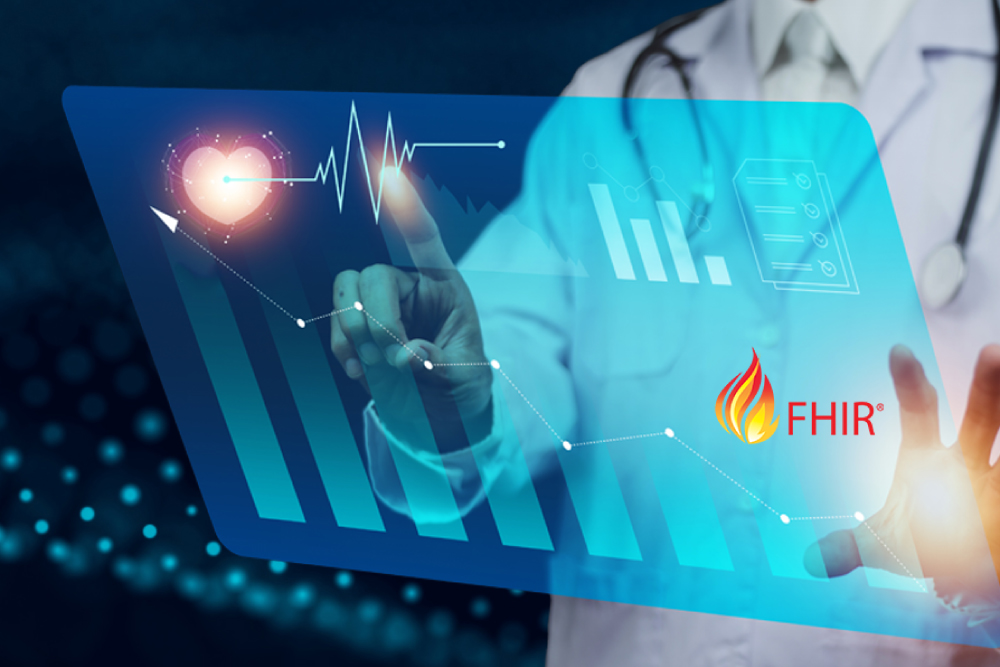FHIR Stack
FHIR Stack is a cutting-edge, high-performance server that manages the secure sharing of health data in accordance with the FHIR protocol, enables seamless interoperability of health information systems and ensures compliance with HL7 standards.
Benefits and Innovations
FHIR Stack enables the structuring, sharing and interoperability of data exchanged among healthcare providers, ensuring the creation of highly available and comprehensive data. This standard encompasses a set of data formats (e.g., JSON, XML), resource definitions (e.g., Patient, Observation, MedicationRequest) and communication methods (e.g., RESTful API, HTTP, WebSocket), facilitating seamless data exchange between healthcare systems, applications and devices. Its modular structure allows healthcare organizations to implement only the components they need, making it highly adaptable to diverse system requirements.
FHIR Stack enables real-time communication across clinical and administrative workflows, driving secure, efficient and seamless operations. It mainly enables the development of integrated health information systems by streamlining health data management and improving communication between diverse information systems and healthcare facilities.
Benefits
- Centralized Data Management
- Unified Research and Clinical Data
- Custom Application Support
- Secure Data Exchange
- Easy Developer Integration
- Efficient Data Access
- Data Use Optimization
- Enhanced Data Security
- Transparent Audit Logging
- Secure User Access
Innovations
- Scalable and Robust
- Improved Traceability
- EMPI Integration
- HL7 v2 Interfacing
- SMART on FHIR Support
Bridging Data, Transforming Healthcare Delivery: FHIR Stack
FHIR Stack sets the foundation for transformative healthcare innovations by harmonizing data exchange and enhancing interoperability. It ensures a future of seamless, robust access to health information systems and data. Integration with HL7 standards guarantees global compliance for health data exchange protocols.
Features
HL7 Integration and Compliance Tools
FHIR Stack is equipped with specialized tools designed to ensure full compliance with HL7 FHIR standards, facilitating seamless integration with existing healthcare information systems. These tools enable data validation, mapping and transformation to and from FHIR format, ensuring interoperability across different healthcare information systems. By supporting HL7, FHIR Stack significantly reduces the complexity and cost of data integration projects while enhancing the ability to share, interpret and utilize healthcare information effectively.
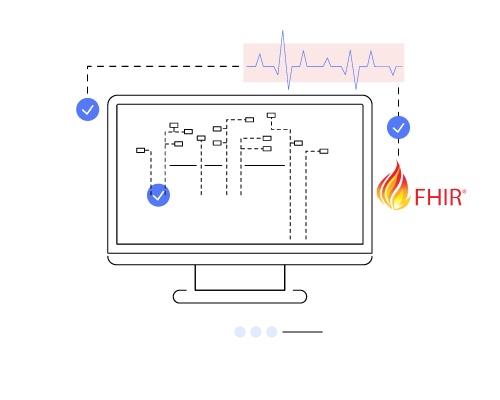
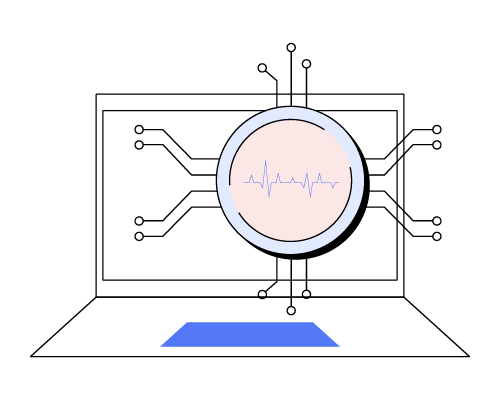
One-Hub
Centralizing all data collections into a single hub elevates functionality to unprecedented heights. By facilitating data sharing, it seamlessly connects research and clinical care, creating a cohesive data ecosystem. It not only enables the harmonious treatment of data as a unified entity but also empowers the development of bespoke applications.
Preparing Connections
FHIR Stack is a central hub exchanging data safely and integrating various healthcare environment systems that offer the API Manager for sharing or accessing data with secure connections. Modern concepts and accompanying documentation will make it much easier for external developers and applications to connect quickly and get the data needed.
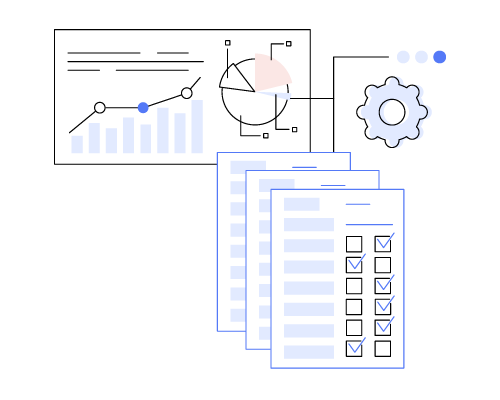
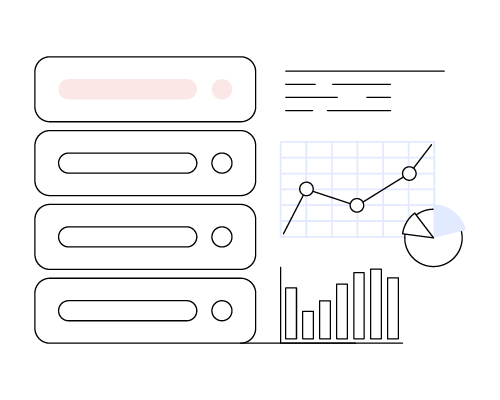
Data Management
FHIR Stack provides a middleware layer between application services and data layers for convenient, high-performance data access operations. One of the main goals of FHIR Stack is to help people, organizations and connected things optimize the use of data within the bounds of policy and regulation so that they can make decisions and take actions that maximize the benefit.
Data Security & Privacy
FHIR Stack provides a robust set of security controls and technical capabilities established to protect patient data, PHI and PII, in addition to sensitive data. Moreover, systems management and operations are covered in storage, transit and processing via verifiable security controls and cryptography.
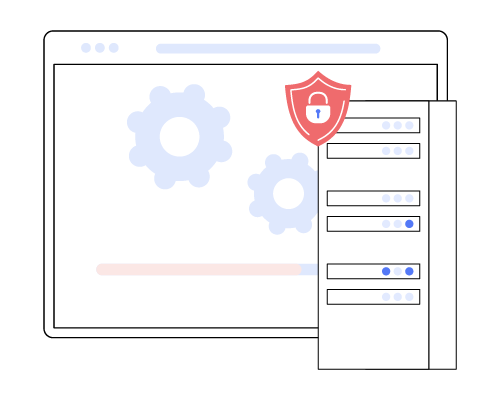
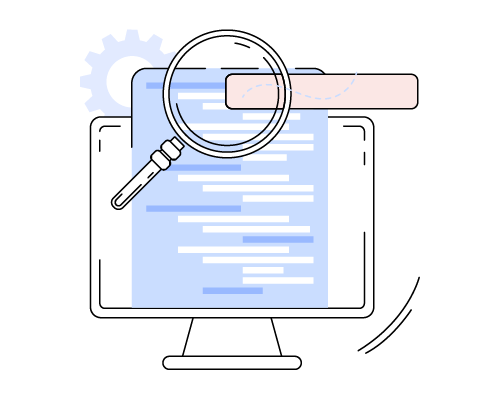
Provenance and Audit Logging
With FHIR Stack, logging and auditing of each service accessed by system users are performed and stored in its database to track unwanted operations. FHIR Stack logs and audits every request to the enterprise system made by a user's device with the user's identity, device and other important information.
Accessing and Authorization
Security and privacy management are essential in restricting unauthorized access to sensitive healthcare data stored in the FHIR Stack. The system enables a secure platform and modern and proven technologies like Oauth2 for authentication and authorization.
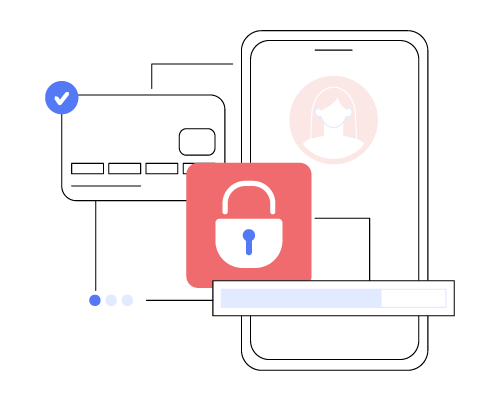
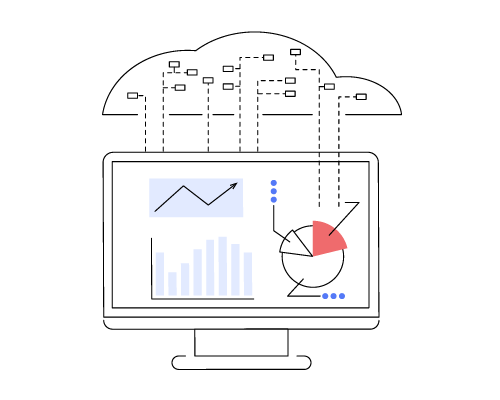
Dynamic Data Visualization Tools
FHIR Stack comes equipped with dynamic data visualization tools that enable healthcare professionals and researchers to generate real-time graphs, charts, and reports. These tools facilitate understanding complex datasets at a glance, enhancing analytical capabilities and supporting informed decision-making.
Customizable Workflow Automation
With FHIR Stack, healthcare facilities can automate their clinical and administrative workflows, customizing them to meet their unique needs. This feature streamlines processes, from patient intake to billing, reducing manual errors and saving time. It enhances overall efficiency and allows healthcare staff to focus more on patient care than administrative tasks.
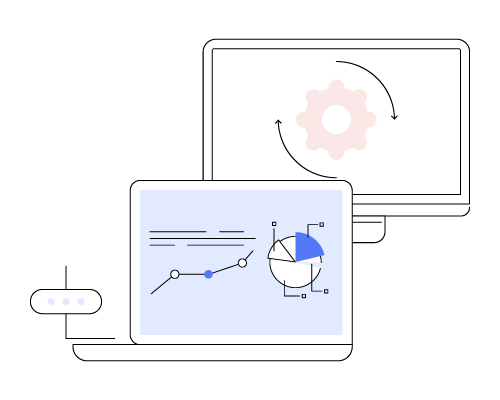
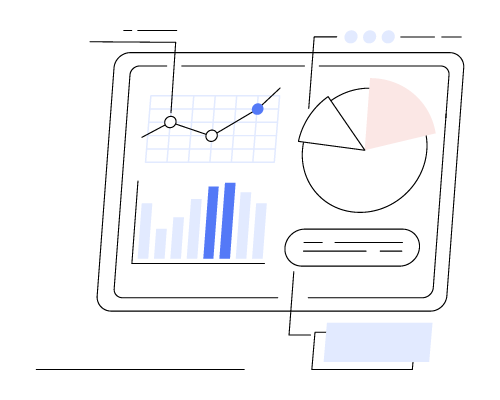
Interoperable Analytics Platform
It features an interoperable analytics platform that seamlessly integrates with existing healthcare systems to enhance Big Data in healthcare. It supports predictive analytics, helping to forecast patient outcomes and identify risk factors by analyzing diverse datasets. This platform empowers health professionals to make evidence-based decisions and tailor patient care plans effectively.
Real-Time Patient Monitoring and Alerts
It enables real-time patient monitoring and generates automated alerts for healthcare providers. This feature allows for continuously tracking patient vitals and health indicators, facilitating immediate interventions when necessary. It significantly improves patient safety and outcomes by ensuring that electronic health records are promptly transmitted, enhancing the quality of care delivered.
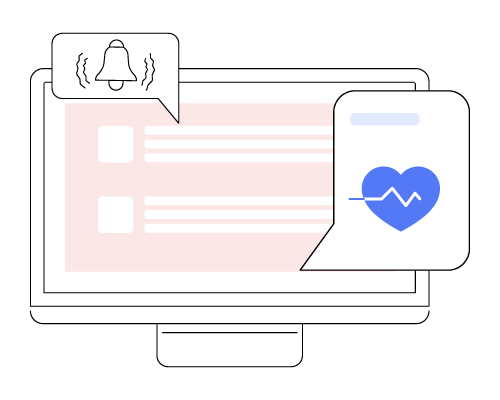
Benefits for Patients
Access to
Quality Care
Complete, accurate and integrated health data management ensures that patients receive higher quality care.
Personalized
Treatments
Accurate and consistent processing of health data supports the creation of more personalized treatment plans tailored to patients' needs.
Seamless
Care Continuity
Health records maintained through seamless integration between platforms ensure patients receive consistent care, reduce the risk of errors and improve treatment outcomes.
Data Security and
Privacy
Patient data is protected in compliance with the highest security standards, ensuring data security and privacy.
Benefits for Health Professionals
Efficient
Information Sharing
It enables swift and secure sharing of patient information among healthcare professionals, facilitating better-informed decisions and more cohesive care strategies.
Enhanced
Clinical Workflow
FHIR Stack streamlines clinical operations with easy access to comprehensive patient data, improving efficiency and allowing more time for patient care.
Advanced
Diagnostic Support
With access to a wide range of health data and analysis tools, healthcare professionals improve patient care by making accurate diagnoses and creating personalized treatment plans.
Collaborative
Care Models
The FHIR Stack fosters multidisciplinary approaches and a collaborative environment by integrating and interoperating data from various sources.
Benefits for Healthcare Systems, Providers and Authorities
Regulatory Compliance
Ease
It ensures healthcare systems comply with data protection and privacy regulations, simplifying legal adherence and enhancing trust in healthcare services.
Data-Driven
Decision Making
Healthcare authorities and regulators make more informed decisions by accessing healthcare analytics and statistics.
Healthcare System
Efficiency
By optimizing data management and access, healthcare authorities can achieve greater operational efficiency, reducing costs and improving service delivery.
Quality Care
Enhancement
It supports international standards and best practices in care delivery, leading to improved healthcare quality and patient satisfaction.
